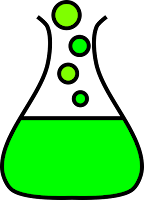Making a Difference: The Value of High-Quality Professional Learning

By Laura Gabrion, Wayne RESA Literacy Consultant and Disciplinary Literacy Task Force Member, and Jenelle Williams, Oakland Schools Literacy Consultant and Disciplinary Literacy Task Force Co-Chair As noted in the National Council of Teachers of English (NCTE) Policy Research Brief entitled “Literacies of Disciplines'' (2011), “[i]mplementing literacies of disciplines will require significant attention to professional development for teachers.” Furthermore, e ffective professional development, as described in a literature review by Darling-Hammond et al. (2017), should have several key characteristics. It needs to be focused on content; involve active and collaborative learning; use models of effective practice; provide opportunities for feedback and reflection; and be of sustained duration. As such, “[t]he professional development that will provide teachers with the resources and strategies necessary to support students in acquiring plural literacies needs to be sustained and ...

